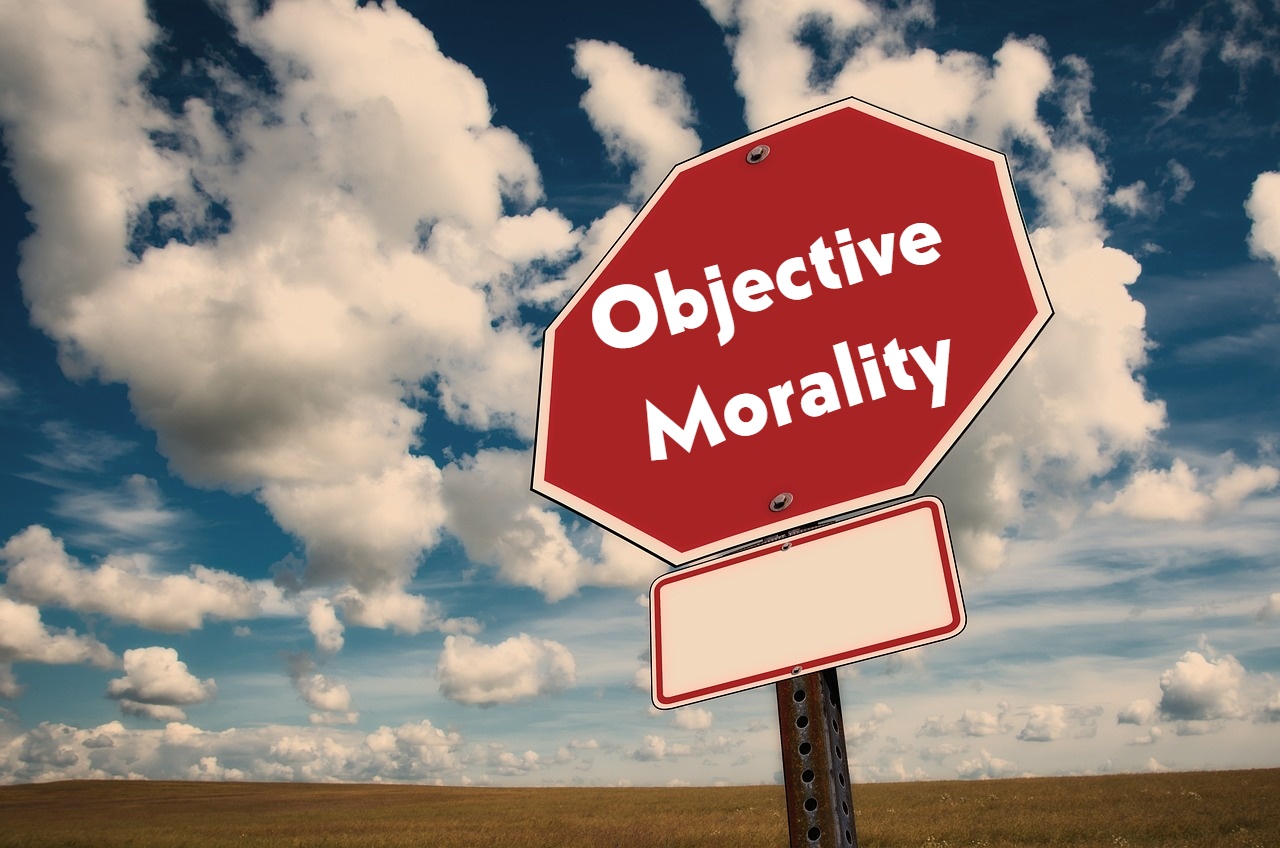Objective Morality
The concept of objective morality, the idea that certain moral principles are universally true regardless of cultural or individual beliefs, is a topic that has captivated philosophers and ethicists for centuries. At its core, objective morality suggests that there are moral truths that exist independently of human opinions, much like scientific truths exist regardless of whether humans acknowledge them.
This idea challenges the relativistic view that morality is purely subjective, varying from person to person or culture to culture. As philosopher Immanuel Kant famously articulated, “Two things fill the mind with ever-increasing wonder and awe…the starry heavens above me and the moral law within me.” This quote reflects Kant’s belief in a moral law that transcends human experience and serves as a guiding principle for ethical conduct.

One of the key arguments in favor of objective morality is based on the concept of moral realism, which posits that moral truths exist as objective facts. Just as the laws of physics describe the objective behavior of the physical world, moral truths describe the objective nature of right and wrong. For example, the prohibition against causing unnecessary harm to others is often cited as a universal moral principle that applies in all circumstances.
This principle is not dependent on individual beliefs or cultural norms but is grounded in the objective value of human well-being. As philosopher Thomas Nagel wrote, “If something is really wrong, that is a fact, not just a matter of somebody’s opinion.” This perspective suggests that moral facts exist independently of our beliefs about them and can be discovered through rational inquiry and reflection.
Morality
Morality refers to the principles concerning the distinction between right and wrong or good and bad behavior. It encompasses a set of values, norms, and principles that guide individuals and societies in determining what is morally right and wrong. Morality often involves considerations of fairness, justice, compassion, and the well-being of others. It can be influenced by various factors, including cultural, religious, philosophical, and personal beliefs.
According to the philosopher Aristotle, morality is the “desire and action conformable to the right reason.” This definition emphasizes the role of reason in moral decision-making, suggesting that moral actions are those that are guided by rational considerations of what is virtuous and beneficial.
Objective Morality
Objective Morality is the concept that certain moral principles are universally true, independent of individual beliefs or cultural practices. It posits that there are objective standards by which we can judge the rightness or wrongness of actions, regardless of subjective opinions. According to philosopher Immanuel Kant, objective morality is based on the idea of the “categorical imperative,” which states that moral actions are those that can be universally applied without contradiction. This definition emphasizes the universal and objective nature of moral principles, suggesting that they apply to all rational beings in all circumstances.
Objective morality is the belief that certain moral principles are universally true, independent of individual beliefs or cultural practices. It suggests that there are objective standards by which we can judge the rightness or wrongness of actions, regardless of subjective opinions.
Imagine a group of friends playing a game. They all agree on the rules before they start. One of the rules is that no one is allowed to cheat. If someone does cheat, everyone agrees that it’s wrong, even if the person who cheated thinks it’s okay because they wanted to win. This shows that there’s a universal standard in the game that cheating is wrong, no matter what someone personally believes.
In real life, objective morality is like the rules of the game. It suggests that there are certain actions, like cheating, stealing, or harming others, that are always wrong, no matter the situation. For example, most people would agree that it’s wrong to harm someone just for fun, even if someone else thinks it’s okay. This idea of objective morality provides a clear, universal standard for moral behavior, helping us understand what is right and wrong in a consistent way.
Comparison with Subjective Morality
Objective morality and subjective morality represent two contrasting views on the nature of moral values and principles. Objective morality posits that certain moral truths are universally true, independent of individual beliefs or cultural practices. In contrast, subjective morality asserts that moral values are contingent upon individual or cultural beliefs and can vary from person to person or society to society.
One key difference between the two views lies in their approach to moral principles. Objective morality suggests that there are objective standards by which the rightness or wrongness of actions can be judged, providing a clear and universal framework for ethical decision-making. In contrast, subjective morality emphasizes the role of personal feelings, opinions, and cultural norms in determining what is morally right or wrong, leading to a more relativistic view of morality.
Additionally, objective morality implies that moral truths exist independently of human opinions, similar to objective facts in other domains like science. This view suggests that there are moral truths that can be discovered through reason and reflection, providing a basis for moral objectivity. On the other hand, subjective morality suggests that moral values are ultimately based on subjective experiences and perspectives, leading to a more pluralistic understanding of morality.
Overall, the debate between objective and subjective morality reflects deeper questions about the nature of ethics and the foundations of moral values. While objective morality offers a compelling framework for understanding ethics as universal and timeless truths, subjective morality highlights the diversity and complexity of moral beliefs and practices across different cultures and individuals.
Arguments for Objective Morality:
- Universal Standards:
Objective morality posits that certain moral principles are universally true, applying to all individuals regardless of their cultural, religious, or personal beliefs. This implies that there are objective standards by which the rightness or wrongness of actions can be judged, independent of subjective opinions or societal norms.
- Religious Argument:
Many religious traditions posit the existence of objective moral truths grounded in the nature of a divine being or cosmic order. In Islam, the Quran is considered the literal word of God as revealed to the Prophet Muhammad, containing ethical guidelines and commandments that are considered universally binding. For example, the Quran prohibits theft, murder, and adultery, stating them as objective moral wrongs. This perspective asserts that moral values are not subject to human interpretation or cultural relativism but are inherent in the divine will, providing a religious basis for objective morality in Islamic thought.

- Moral Realism:
Proponents of objective morality often appeal to moral realism, which asserts that moral truths exist as objective facts, similar to truths in other domains such as mathematics or physics. This view suggests that moral values are not merely expressions of individual preferences or cultural norms but are truths that exist independently of human beliefs.
- Ethical Principles:
Objective morality provides a framework of ethical principles that can guide moral decision-making. These principles, such as the principle of reciprocity (e.g., the Golden Rule) or Kant’s categorical imperative, offer universal guidelines for determining the rightness or wrongness of actions, irrespective of personal or cultural perspectives.
- Human Dignity and Rights:
Objective morality often emphasizes the inherent value and dignity of every human being. This perspective underpins the idea of human rights, suggesting that certain rights, such as the right to life and the right to freedom from torture, are universal and inalienable, regardless of cultural or societal differences.
- Consistency and Clarity:
Objective morality provides a consistent and clear basis for ethical decision-making. Unlike subjective morality, which may lead to moral relativism and conflicting moral judgments, objective morality offers a stable foundation for understanding and evaluating moral issues.
Arguments against Objective Morality:
- Cultural Relativism:
Critics of objective morality argue that moral values are culturally relative, meaning that what is considered right or wrong can vary from culture to culture. They suggest that there is no universal standard for morality.
- Moral Diversity:
The diversity of moral beliefs and practices across cultures and individuals is often cited as evidence against objective morality. If morality were truly objective, there would be more universal agreement on moral issues.
- Subjective Experience:
Some philosophers argue that moral values are ultimately based on subjective experiences and perspectives. They suggest that moral judgments are influenced by individual feelings, opinions, and cultural norms.
- Ethical Dilemmas:
The complexity of moral dilemmas, where there are conflicting moral principles or duties, is seen as a challenge to the idea of objective morality. Critics argue that if morality were objective, these dilemmas would not arise.
The debate between objective and subjective morality is complex and multifaceted, touching on fundamental questions about the nature of ethics and moral values. While objective morality offers a compelling framework for understanding ethics as universal and timeless truths, subjective morality highlights the diversity and complexity of moral beliefs and practices across different cultures and individuals. The arguments for objective morality, including the existence of universal standards, moral realism, and the role of ethical principles, provide a strong basis for considering the possibility of objective moral truths.

However, criticisms based on cultural relativism, moral diversity, subjective experience, and ethical dilemmas challenge the notion of objective morality, suggesting that moral values are contingent upon individual or cultural beliefs. Ultimately, the debate between objective and subjective morality underscores the complexity of ethical reasoning and the ongoing quest to understand the foundations of moral values in human societies.

